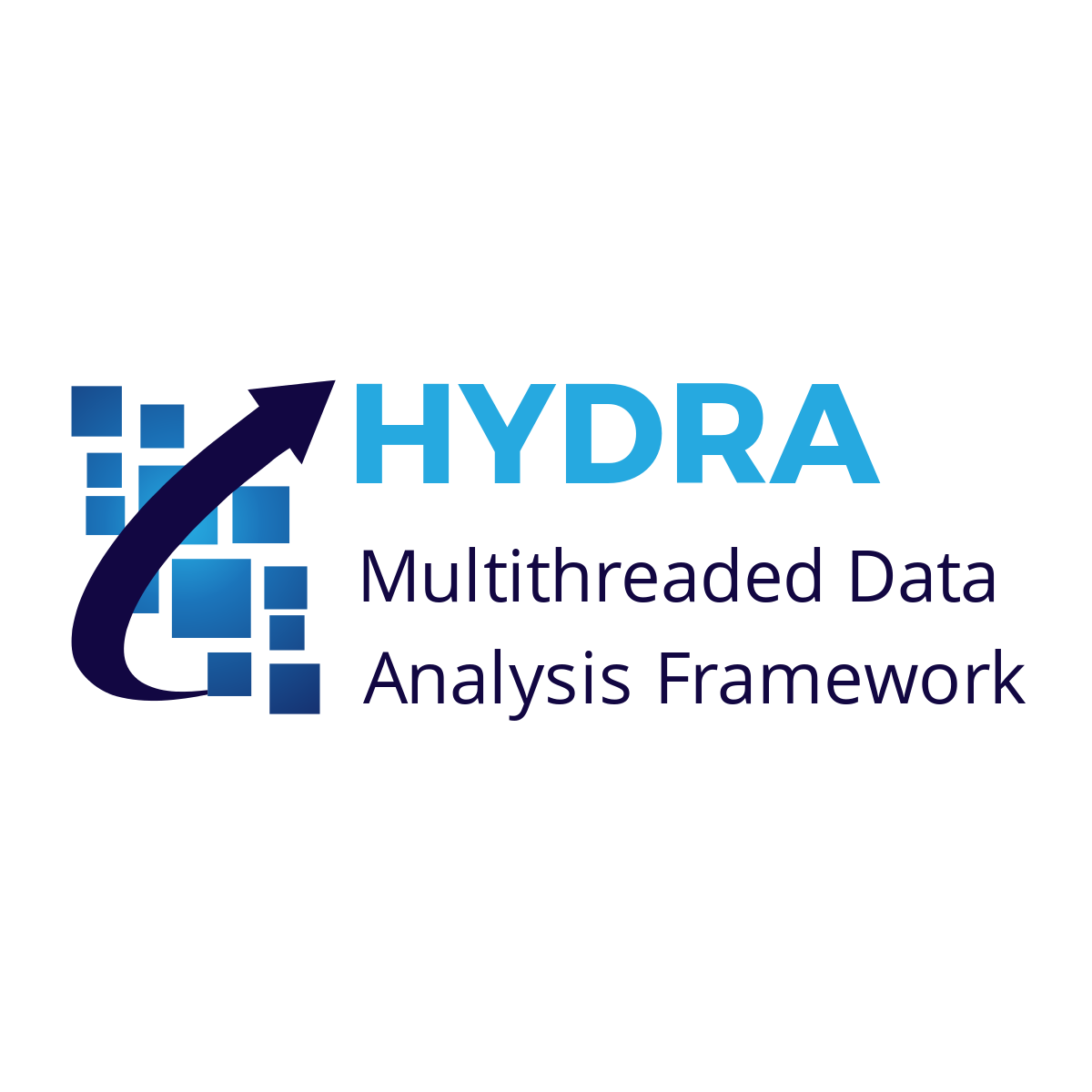PhaseSpace Class¶
This class implements the phase-space Monte Carlo event generation where N is the number
of particles in the final state. Currently PhaseSpace class supports up-to
N=10 number of particles in the Final state. Most of the PhaseSpace class
methods can work on both HOST and DEVICE. The number of particles is
associated with suffix with the class name.
This class is the wrapper for the C++ PhaseSpace class. The PhaseSpace class contains one constructor to instantiate it:
- Constructor with N number of daughter masses.
import HydraPython as hypy
p = hypy.PhaseSpace4([3.096916, 0.493677, 0.13957018, 0.0195018])
# This will construct the PhaseSpace object with the 4 daughter masses in the list.
The PhaseSpace classes provides a method to generate a phase-space decay given an output range or a phase-space given a range of mother particles and an output range.
# The below example generates and fills 3 states of 4 particle host events
vec4 = hypy.Vector4R(5.2795, 0.0, 0.0, 0.0)
ps = hypy.PhaseSpace4([3.096916, 0.493677, 0.13957018, 0.0195018])
e_host = hypy.host_events_4(3)
e_device = hypy.device_events_4(3)
ps.GenerateOnhost(vec4, e_host) # Generate particle on host
ps.GenerateOndevice(vec4, e_device) # Generate particle on device
B0_mass = 5.27955
B0 = hypy.Vector4R(B0_mass, 0.0, 0.0, 0.0)
mothers = hypy.host_vector_float4(5)
# Fill mother with some particles
mothers[0] = (3.326536152819228, -0.7376241292510032, 0.9527533342879685, 0.15239715864543849)
mothers[1] = (3.3327060111834546, -0.44741166640978447, 1.012640505284964, -0.5390007001803998)
mothers[2] = (3.4673036097962844, 0.6781637974979919, -1.4020213115136253, -0.0763859825560801)
mothers[3] = (3.5042443315560945, 1.5383404921780213, -0.1442073504412384, -0.5492280905481964)
mothers[4] = (3.4406218104833015, -0.16339927010014546, 1.363729549941791, 0.6005257912194031)
phsp2 = hypy.PhaseSpace2([0.1056583745, 0.1056583745])
grand_daughter = hypy.host_events_2(5)
phsp2.GenerateOnhost(mothers, grand_daughter)
for i in grand_daughter: print(i)
The AverageOnhost and AverageOndevice method by PhaseSpace classes calculate the
mean and sqrt(variance) of a functor over the phase-space with n-samples or
of a functor over the phase-space given a list of mother particles.
import HydraPython as hypy
import math
def foo(*data):
p1, p2, p3 = data[0], data[1], data[2]
p = p1 + p2 + p3
q = p2 + p3
pd = p * p2
pq = p * q
qd = q * p2
mp2 = p.mass2()
mq2 = q.mass2()
md2 = p2.mass2()
return (pd * mq2 - pq * qd) / math.sqrt((pq * pq - mq2 * mp2) * (qd * qd - mq2 * md2))
vec4 = hypy.Vector4R(5.2795, 0.0, 0.0, 0.0)
p = hypy.PhaseSpace4([3.096916, 0.493677, 0.13957018, 0.0195018])
tup = p.AverageOnhost(vec4, foo, 10) # Average of host, currently passing functor to device will fail
print (tup[0]) # Mean
print (tup[1]) # sqrt of variance
Like generators, the AverageOn method also can accept the list of mother particle instead of one mother particle
and calculate the mean and sqrt(variance).
The EvaluateOnhost and EvaluateOndevice evaluates a functor over the passed one mother particle or the list
of mother particles.
The complete list of class implementations can be found at [1] and the complete list of methods supported can be found at [2].
| [1] | The list of PhaseSpace classe implementations
|
| [2] | The list of methods for the PhaseSpace classes
|
